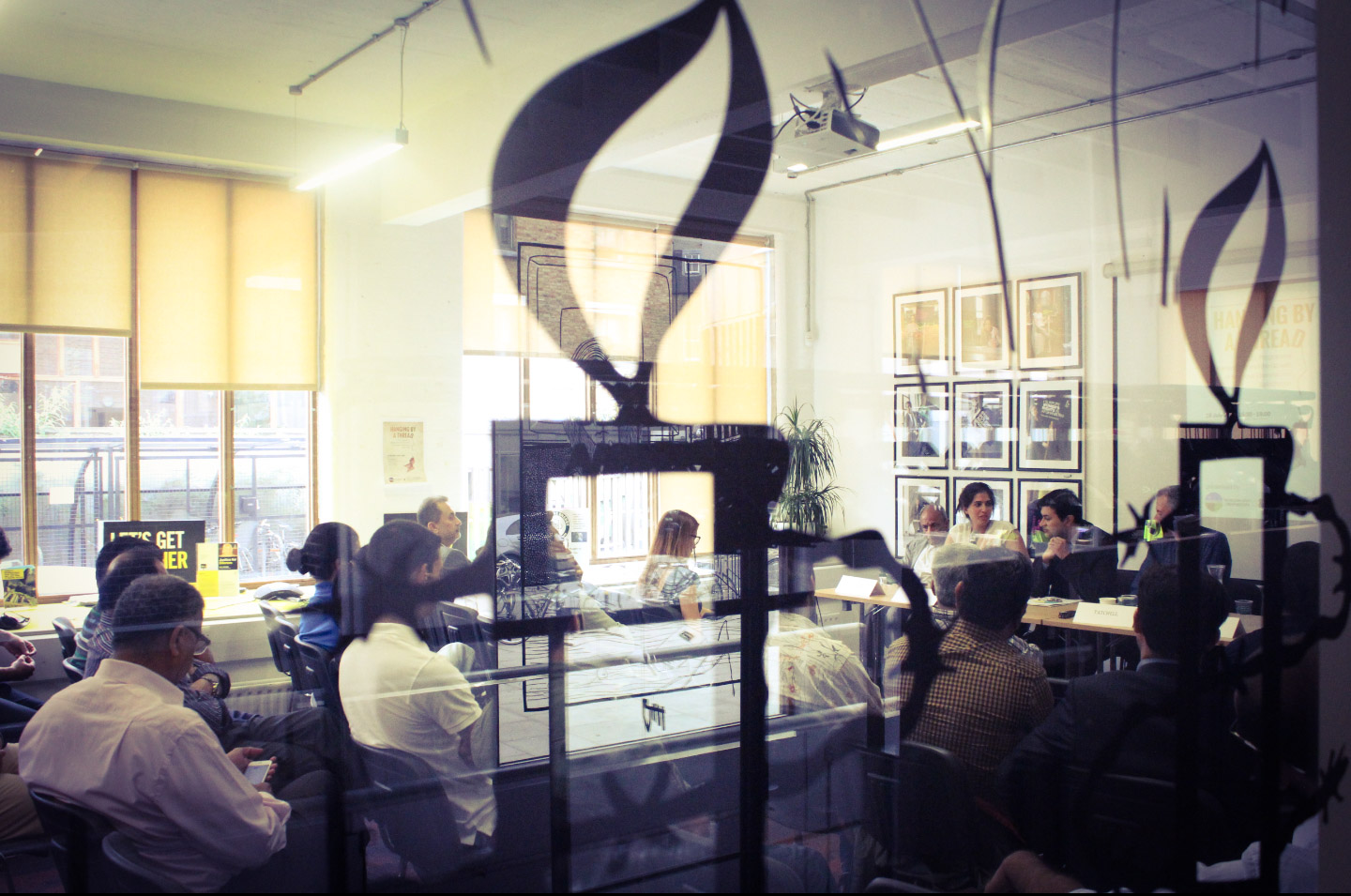On the 18th of July 2017, the Unrepresented Nations and Peoples Organization (UNPO) and the World Baloch Organization (WBO) organised the seminar “Hanging by a Thread: CPEC, Progressive Nationalism and the Growth of Religious Extremism in Balochistan”. Held at the London headquarters of Amnesty International, the event brought together eminent human rights advocates and academic experts, offering a platform for constructive debates on the struggle of indigenous peoples and minorities and state violence in Pakistan, and the future of Balochistan.
Panel moderator Mr Peter Tatchell, director of the Peter Tatchell Foundation, opened the debates highlighting the importance of raising awareness and concern about the situation in Balochistan, neglected by the international community and even by most human rights organisations.
Mr Athar Hussain, director of the London School of Economics (LSE) Asia Research Centre reminded the audience that the China-Pakistan Economic Corridor (CPEC) – which will give the landlocked western part of China a direct link to the Arabian and Indian Sea – is part of a wider network of Chinese projects, the “One Belt, One Road” (OBOR), composed of six different corridors. Mr Hussain affirmed that the project is, indeed, likely to bring economic benefits, mainly regarding energy provision and considering the current energy shortage in the country. Nevertheless, he stated, the concerning matter is the way these benefits will be distributed. CPEC will not necessarily bring benefits to the regions through which it passes, being likely to bring more development to regions that are already developed, instead of poor areas such as Balochistan. Mr Hussain also noted that CPEC is designed to bring profit to China more than to other parts involved, and that structural issues in Pakistan such as corruption and tax evasion are also to be taken into consideration when analysing the prospects of local development.
Ms Mahvish Ahmad, currently a doctoral student at the University of Cambridge, spoke about her experience reporting on Balochistan, where she witnessed the state and military violence and oppression against the Baloch people. According to Ms Ahmad, the situation has become more difficult because of increasing censorship by the military and fragmentation not only between tribes, but also between Baloch groups. She stressed that the silencing of solidarities among oppressed groups hinders their potential to succeed. Furthermore, Ms Ahmad shed a light on the fact that Pakistani army’s unlawful activities and cases of state violence are not reported in the country, while some extremist groups’ comparatively small actions – although not less reprehensible – are the ones more often highlighted in the media.
Mr Naseer Dashti, exiled Baloch anthropologist and the author of several books on South Central Asia and Balochistan, talked about the concerning prospects of CPEC altering demography in regions such as Balochistan, where already oppressed groups are bound to become minorities as Han-Chinese workers and – as it happened around the port of Gwadar – Punjabi businessmen are likely to settle as the corridor is implemented.
Mr Burzine Waghmar, PhD candidate and Senior Teaching Fellow at the School of Oriental and African Studies (SOAS) emphasised that “Pakistan is a failed state that refuses to fail”. Mr Waghmar poignantly conveyed how the CPEC infrastructure will in no way benefit the Baloch indigenous population, as there are no coal, solar or wind projects planned for the area. Mr Waghmar placed the challenges posed by CPEC in a context of decades of human rights violations inflicted upon the indigenous Baloch population, such as enforced disappearances – and how the US$46-billion-dollar mega project will accelerate these.
First ever Baloch Rhodes Scholar at the University of Oxford, Mr Rafiullah Kakar took the floor to discuss the future of the Baloch question and whether it can be solved within the Pakistani federal framework. Mr Kakar underlined how the Pakistan was born with tensions regarding the multi-ethnic and multinational character of its territory, and soon started to see this as a potential threat to the state unity. He lined out several changes that need to occur in Pakistan to solve the Baloch question, such as less power to the Pakistani army, creation of a plural national government and direct elections of senators. He emphatically concluded his contribution by affirming that “The state’s coercive capacity and ability to manipulate consent, even creating fragmentation and hindering solidarity between tribes, is far too strong in Balochistan”.
The contributions were then followed by an interactive question and answer session, where the audience got the chance to discuss Baloch progressive nationalism, repercussions of the China-Pakistan Economic Corridor on different non-Punjab Pakistani ethnic communities and what concrete measures would be most effective for the direct future of Balochistan – to effectively end the atrocities inflicted upon its people.

